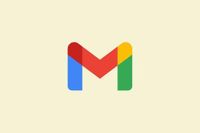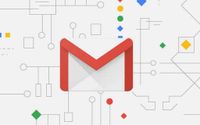Google is making strides in improving user experience on its iconic email platform, Gmail, by incorporating advanced artificial intelligence (AI) technology that now sorts emails based on relevance instead of the traditional chronological order, a change that many users have long awaited.
Starting on March 21, 2025, Gmail will utilize AI to reorganize email search results, enhancing the efficiency with which users can find important messages amidst the sea of their daily emails. This innovative update allows users to see the emails most likely to fulfill their search request at the top of their search results.
According to Google, this enhancement considers various factors in determining email relevance, including the recency of the emails, the frequency with which specific messages are clicked, and interactions with frequent contacts. For instance, if users often correspond with a particular contact, emails from that individual will be prioritized in search results.
With a new button, users can customize their Gmail experience by toggling between two sorting modes: 'Most Relevant,' which will be the default setting, and 'Most Recent,' providing users who prefer traditional chronological sorting with their still-familiar functionality. "This change aims to save time and facilitate access to relevant information," noted a Google spokesperson.
The update is currently being rolled out globally for personal Google accounts accessible through the web version and mobile applications for both Android and iOS platforms. Notably, a future plan is in place for this feature to extend to Google Workspace professional accounts, although no specific date has been announced for the professional rollout as of yet.
Google's transition from strictly chronological email sorting to a model that prioritizes relevance signifies a major evolution in how email management is approached. Traditionally, search results were displayed based only on the presence of keywords and the date they arrived, which often could lead to frustration particularly when common terms like "meeting" or "invoice" cluttered search results.
This new AI-enabled method is certainly not just a cosmetic addition. Many users may find it substantially boosts their daily efficiency by lowering the mental load associated with searching for important messages within a crowded inbox.
Moreover, Gmail's enhancements do not stop with relevance-based sorting. Recently, Google introduced the Gemini feature into Gmail, allowing users to conveniently add events directly to Google Calendar from their emails. In addition, the inclusion of 'summary cards' allows for quick actions directly from the inbox, such as tracking packages, managing invoices, and registering flights, making for an increasingly streamlined user experience.
As part of a larger initiative, Google's development team is continuously focused on optimizing its tools using AI technology to significantly enhance overall productivity among users. This commitment is likely to extend toward other Google products in the months to come.
In essence, for the millions who regularly rely on Gmail for personal and professional correspondence—over 1.8 billion active users globally—this latest improvement could be a game changer, providing a more intuitive and user-friendly email experience.
As competition among email platforms intensifies, especially following the introduction of similar tools in Apple's iOS 18, Google is keenly aware of the need to retain its user base. By rolling out features that align more closely with user expectations and practical requirements, Gmail is positioned to remain a leader in email services.
While many long-standing users may have initially been resistant to change, the recent updates, particularly the ability to sort by relevance, align Gmail more closely with user habits and preferences, reflecting a broader understanding of how people utilize email today.
This evolution in Gmail doesn't merely symbolize a shift in functionalities; it hints at a future where artificial intelligence takes a central role in enhancing productivity, setting the stage for an even smarter experience to come.




